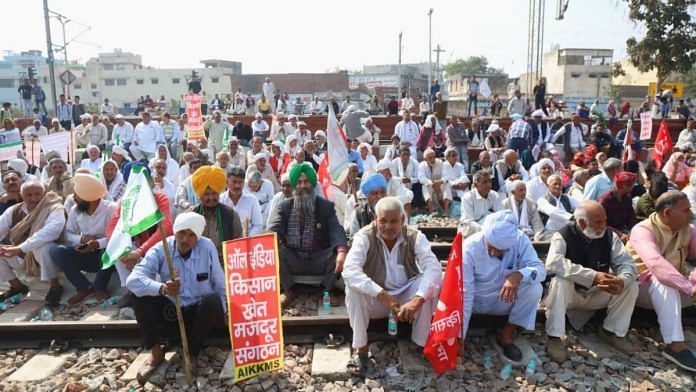
Twenty-first century India is an emerging power. Its socio-economic growth in the first decade of this century was so promising that many started ideating it as the “Indian Century” — the Pax Indica — much along the lines of the 19th century dominance of its past coloniser, the Pax Britannica. The true nationalists of India surely dream of India becoming a global leader in all thinkable fields.
However, such global dominance requires creating fertile conditions back home to ‘take-off’, along with gaining moral high ground internationally to lead the world. The moral high ground in this era of human rights and civil liberties comes from the socio-political culture and practices of the nation.
In the past few years, we have seen a rise in authoritarian regimes across the globe. The EIU’s 2020 Report on Democracy shows the global average democratic score hit an all-time low in 2020, partly due to the Covid-induced lockdowns.
From Jair Bolsonaro’s Brazil to Recep Tayyip Erdogan’s Turkey, the world is under the grip of a new virus of authoritarianism and irrationality. The civil liberties in most of the countries are going for a toss. The governments all across the world are using repressive measures against any kind of dissent.
‘Andolanjeevis’ or activists?
In these trying times for democracy, Prime Minister Narendra Modi’s characterisation of ‘andolanjeevis’ (professional protesters) as ‘parjeevis’ (parasites) throws a bad light on India’s democratic traditions. A country whose very foundations are set in the rich tradition of non-violent protests shouldn’t discredit protesters as parasites. Instead, in a democratic spirit, the ‘andolanjeevis’ should be encouraged, because these are the activists who attempt to bring about a positive impact on the society through constitutional methods.
These activists represent the civil societies, speak up against the wrongdoings of the State, act as whistleblowers, and lead the society towards progress. In fact, it is these social activists that help the government sustain their legitimacy among the public by acting as a safety valve against sea-changing social upheaval.
India is witnessing, reportedly, the largest organised protest in human history. According to claims made by trade unions, the 2020-21 farmers’ protest involves about 25 million Indian farmers protesting against the three farm laws passed by the Modi government.
The widespread mobilisation by the farm leaders across the agriculturally intensive states of Punjab, Haryana and Uttar Pradesh using the age-old social institutions of gurdwaras and khap panchayats, especially after the emotional outburst of farm leader Rakesh Tikait, have potentially pushed the protests towards a ‘snowball effect’.
The spread of the protest into the interior villages of these three states, along with the heavy repression by the government, have led the protest to only grow further.
But, the pictures of installing nails and digging ditches by a democratically elected government to stop the protesting citizens from entering the national capital have not gone down well with the international community, raising the eyebrows of many human rights organisations across the world.
Can India regain its ground as a responsible country?
One thing that true Indian nationalists should be proud of is that India has achieved a new milestone. It has topped the list by witnessing the largest organised protest in human history on its soils, thanks to the Indian farmers.
Granted, giving space to the largest organised protest in human civilisation — reportedly over 250 million farmers — and its peaceful coexistence with talks for resolution is not easy even for any established democracy. Yet, our Constitution, drafted seven decades back, continues to prove its mettle by giving space to dissenters. The only thing these protests will do is strengthen the resilience of Indian democracy.
India should clinch this opportunity of showing the world its faith in deliberative democracy. The sole thing to be done by PM Modi and his government is to break the ‘walls’ of amour- propre, welcome these protesting farmers, and on a conciliatory note, concede to their demands, so that the agricultural reforms can be started afresh with a new energy.
Currently, the rise of an authoritarian China as the global superpower is threatening the very foundations of democratic ideals, civil liberties and human rights. In such a scenario, India should act as a saviour of democracy, which will help it in gaining the moral high ground as the only viable alternative to China. Democracy is India’s real soft power against China.
As American philosopher Howard Zinn rightly argued: “Dissent is the highest form of patriotism.”
India’s true nationalism in the trust it displays towards the democratic values enshrined in its Constitution. This is India’s chance — a so-called ‘third world country’ — to prove its mettle by keeping the flag of democratic traditions high at a time when the ‘first world’ is witnessing a wave of authoritarianism.
Prateek Yadav is a student of Kanpur University, Uttar Pradesh
Subscribe to our channels on YouTube & Telegram
Why news media is in crisis & How you can fix it
India needs free, fair, non-hyphenated and questioning journalism even more as it faces multiple crises.
But the news media is in a crisis of its own. There have been brutal layoffs and pay-cuts. The best of journalism is shrinking, yielding to crude prime-time spectacle.
ThePrint has the finest young reporters, columnists and editors working for it. Sustaining journalism of this quality needs smart and thinking people like you to pay for it. Whether you live in India or overseas, you can do it here.